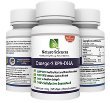
How far are you ready to go to become a genetic parent? (photo courtesy: David Castillo Dominici/Freedigitalphotos.net
Many women know little about their own reproductive systems and are often surprised when infertility issues arise. Often there is time to fix those issues, but even more often, a woman over 35 might find herself running a race with her biological clock.
I think that information about fertility postponement and the limited success of IVF in women over 35 should be much more present in big media, to help women make an informed decision on when (if at all!) they want to become pregnant.
This is even more important for those who wish to be genetic parents and find important to be biological mothers and fathers.
When are you a genetic parent?
Many women over 35 mentally heavy rely on technologies.
Even if they don’t openly talk about it, there is often a hope present to get pregnant naturally (and if this fails, there are IVF, ICSI and other fall-back solutions).
However, many of the assisted reproductive technologies don’t make women to genetic mothers and this is often overlooked by those who don’t understand human reproductive system.
Methods of assisted reproductive technologies which DO enable women to have genetic children:
1. Classic ones: IUI (insemination), IVF (in-vitro fertilization), and ICSI (intracytoplasmic sperm injection)
2. Egg freezing. Paradoxically, the best technological opportunities are open to those who need them least: young women with a lot of eggs and high ovarian reserve. For women from this age group who wish to postpone motherhood and care very much about being genetic parents, technologies can be very helpful. Egg freezing (vitrification) is a method to preserve their fertility and beat up the biological clock for many years, possibly even a whole decade or longer.
Egg freezing has long been considered an experimental technique, but in the last years, oocyte kryopreservation pregnancy rates are becoming similar to those achieved with fresh eggs.
This fact alone makes it an attractive option for young women who don’t have a partner or want to focus on their carreer. They can freeze eggs when they are still young (best is in their mid-20es) and later, when they want to build a family, those eggs can be thawed and fertilized. In this scenario, the women herself remains a genetic mother to her child, regardles of the father she choses to fertilize her thawed eggs with.
Another extension of this method would be freezing embryos instead of eggs on the first place. But, this would then mean dealing with certain questions which can feel overwhelming for a young women.
Given that embryos thaw better then eggs (meaning result in by far more live births), young women could decide to have their eggs fertilized and then store them for the future use. Only, they would probably need to do so using sperm from an unknown donor, but cause if they don’t, they will lose much of the authonomy of deciding on using embryos later on.
Here is in short which methods of assisted reproductive technologies DON’T enable women to have genetic children:
1. Oocyte donation (egg donation). This method leads by far to highest pregnancy rates (40% or more) and they are unaffected by the age of a recipient-women by up to her late 40-es and higher. The reduction in success rates beginns approximately at age 48 but pregnancy still remains possible for another decade or longer. Only, here is important to understand that egg donation automatically means for a mother NOT being genetically related to the child, which makes some women feel uneasy about.
2. Another alternative with high success rates but again not granting a genetic parentship is embryo donation.
Many couples who undergo IVF don’t need all the embryos which were produced. When one such a couple achieves a desired number of children, they can donate extra embryos to the couples who can’t produce any. While this is a phantastic option which enables that even severely infertile couples get pregnant and build families, it again means no genetic contribution of either of the partners to the child, which may be a tough issue for some to deal with.
Supplements which are scientifically proven to increase egg quality:
To know when you ovulate:
Prenatal vitamins:














